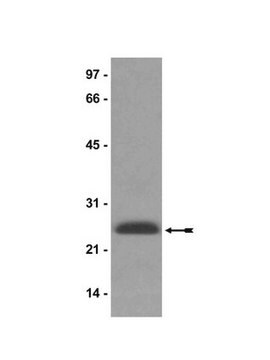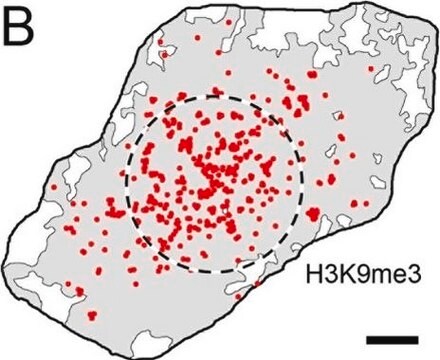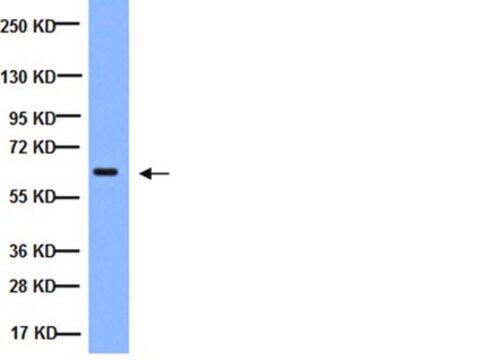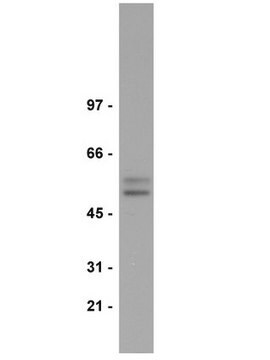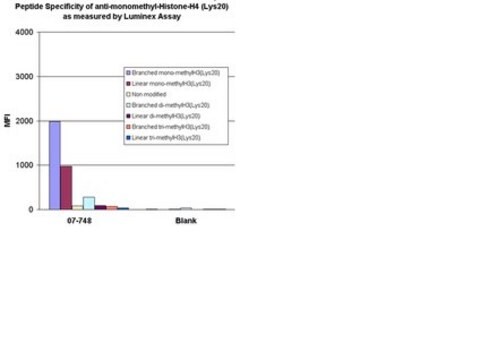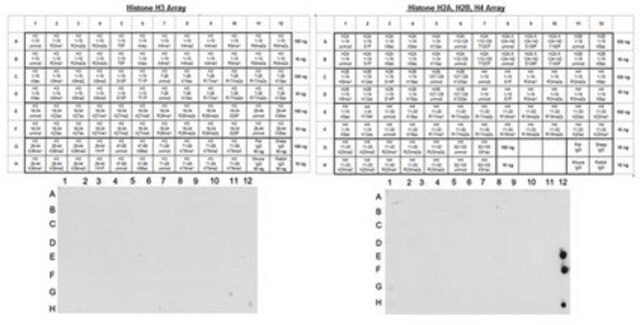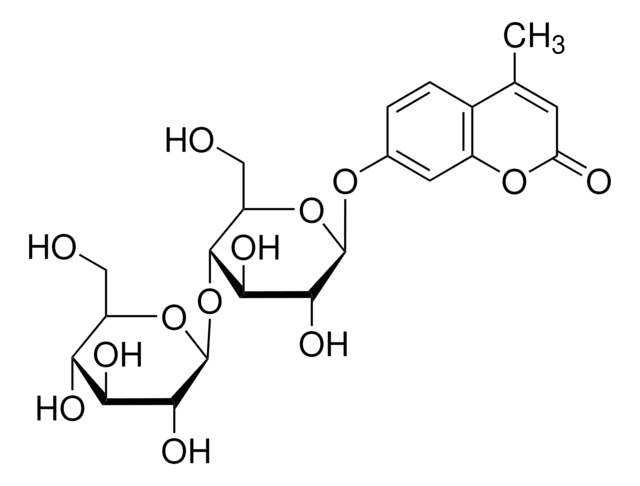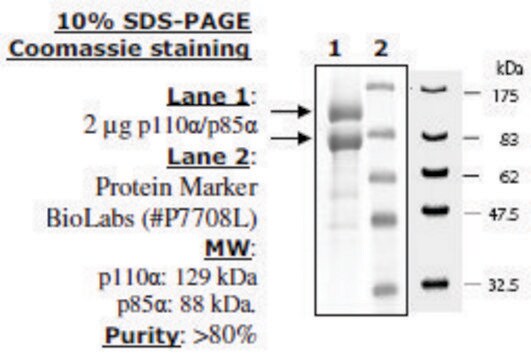07-1570
Anti-monomethyl Histone H4 (Lys20) Antibody
from rabbit, purified by affinity chromatography
Synonym(s):
H4K20me1, Histone H4 (mono methyl K20), H4 histone family, member A, histone 1, H4a, histone cluster 1, H4a
About This Item
Recommended Products
biological source
rabbit
Quality Level
antibody form
affinity isolated antibody
antibody product type
primary antibodies
clone
polyclonal
purified by
affinity chromatography
species reactivity
human
technique(s)
ChIP: suitable
dot blot: suitable
inhibition assay: suitable (peptide)
western blot: suitable
NCBI accession no.
UniProt accession no.
shipped in
dry ice
target post-translational modification
monomethylation (Lys20)
Gene Information
human ... H4C1(8359)
Related Categories
General description
Specificity
(Lys20), Mr 11 kDa.
Application
Sonicated chromatin prepared from HeLa cells (2 X 106 cell equivalents per IP) was subjected to chromatin immunoprecipitation using 4 μg of either a negative control antibody or Anti-Monomethyl-Histone H4
(Lys20) antibody and the Magna ChIP A Kit (Cat. #17-610). Successful immunoprecipitation of monomethyl-histone H4 (Lys20)-associated DNA fragments was verified by qPCR using GAPDH coding region ChIP Primers versus Control Primers corresponding to the GAPDH promoter (Please see figures). Data is presented as percent input of each IP sample relative to input chromatin, with immunoprecipitated DNA from negative control antibody shown as (-) and monomethyl-histone H4 (Lys20) shown as (+).
Please refer to the EZ-Magna ChIP A (Cat. # 17-408) or EZ-ChIP (Cat. # 17-371) protocol for experimental details.
Dot Blot Analysis :
Absurance Histone H3 Antibody Specificity Array (Cat. No. 16-667) and Absurance Histone H2A, H2B, H4 Antibody Specificity Array (Cat. No. 16-665), which contain histone peptides with various modifications were probed with Cat. No. 07-1570 Anti-monomethyl Histone H4 (Lys20) at 1:1000 dilution. Proteins were visualized using a Donkey anti-rabbit IgG conjugated to HRP and a chemiluminescence detection system.
Peptide Blocking Assay:
40 μg of histone H4 peptide containing monomethyl lysine 20 abolished detection of histone H4 by anti-monomethyl-Histone H4 (Lys20) in immunoblot analysis of acid extracts of HeLa cells
Quality
Target description
Not finding the right product?
Try our Product Selector Tool.
Storage Class Code
12 - Non Combustible Liquids
WGK
WGK 1
Flash Point(F)
Not applicable
Flash Point(C)
Not applicable
Certificates of Analysis (COA)
Search for Certificates of Analysis (COA) by entering the products Lot/Batch Number. Lot and Batch Numbers can be found on a product’s label following the words ‘Lot’ or ‘Batch’.
Already Own This Product?
Find documentation for the products that you have recently purchased in the Document Library.
Our team of scientists has experience in all areas of research including Life Science, Material Science, Chemical Synthesis, Chromatography, Analytical and many others.
Contact Technical Service